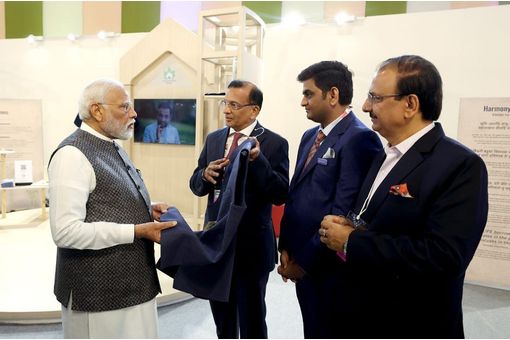Interviews
ASSOCHAM urges RBI to cut CRR, REPO Rate
03 Oct '08
4 min read
Reduce CRR and repo rate by 1%, permit banks to borrow against government securities and provide dollars directly to oil companies rather than routing them through market for buying crude oil are some of the key recommendations of Associated Chambers of Commerce and Industry of India (ASSOCHAM) submitted to RBI to enable it pump in enough liquidity in market.
The recommendations submitted to RBI Governor by the ASSOCHAM President, Mr. Sajjan Jindal further points out that there are several Indian companies now looking for rupee funding as dollar financing is uncertain and is also not possible to raise within the RBI approved spreads.
The level of credit is therefore required to be redefined taking into account the base effect while planning for the future instead of squeezing the credit which will have serious impact on the survival and sustenance of the industry.
The ASSOCHAM representation also stressed that in its future credit policy, the RBI not only curtail CRR and repo rate by 1% so that Indian Inc's borrowing is facilitated to fund its capacity expansion plans.
The RBI should usher in a new era in which oil companies are directly provided dollars in advance so that these are able to hedge their crude purchases in a smooth manner. Currently, the practice is that the oil companies get dollar through different channels in markets.
Likewise, the commercial banks should be permitted to borrow against government's securities as it increases their credibility.
The suggested measures have become necessary so that Indian industry comes out of liquidity crunch. Currently, the cost of money at which Indian industry borrows varies between 25-28% which is very high as a result of which its margins have already shrunk.
Another suggestion made by the President ASSOCHAM comprise that the banks should consider relaxing interest rates on foreign currency deposits and RBI should divert part of its foreign currency reserves as deposits with Indian banks instead of investing in foreign government treasuries with a condition that these funds should be used only pre and post shipment credit for exports.
The Chamber has also sought easing of norms that govern External Commercial Borrowings to help industry raise funds. It has also recommended that RBI should relax the norms relating to lending to the market intermediaries to avoid the liquidity crunch.
The erosion of money from the stock markets at time of heavy selling pressure by foreign investors lead to liquidity tightening which only makes the situation worse,
The price and supply conditions may get worse if the Reserve Bank of India resorts to raising interest rate to control the spiraling inflation and the move would not only hurt the industry but also the consumers, pointed out ASSOCHAM assessment.
It holds that interest rates or tightening the liquidity through cash reserve ratio would not help as the problem does not lie with the quantum of money floating in the economy.
The recommendations submitted to RBI Governor by the ASSOCHAM President, Mr. Sajjan Jindal further points out that there are several Indian companies now looking for rupee funding as dollar financing is uncertain and is also not possible to raise within the RBI approved spreads.
The level of credit is therefore required to be redefined taking into account the base effect while planning for the future instead of squeezing the credit which will have serious impact on the survival and sustenance of the industry.
The ASSOCHAM representation also stressed that in its future credit policy, the RBI not only curtail CRR and repo rate by 1% so that Indian Inc's borrowing is facilitated to fund its capacity expansion plans.
The RBI should usher in a new era in which oil companies are directly provided dollars in advance so that these are able to hedge their crude purchases in a smooth manner. Currently, the practice is that the oil companies get dollar through different channels in markets.
Likewise, the commercial banks should be permitted to borrow against government's securities as it increases their credibility.
The suggested measures have become necessary so that Indian industry comes out of liquidity crunch. Currently, the cost of money at which Indian industry borrows varies between 25-28% which is very high as a result of which its margins have already shrunk.
Another suggestion made by the President ASSOCHAM comprise that the banks should consider relaxing interest rates on foreign currency deposits and RBI should divert part of its foreign currency reserves as deposits with Indian banks instead of investing in foreign government treasuries with a condition that these funds should be used only pre and post shipment credit for exports.
The Chamber has also sought easing of norms that govern External Commercial Borrowings to help industry raise funds. It has also recommended that RBI should relax the norms relating to lending to the market intermediaries to avoid the liquidity crunch.
The erosion of money from the stock markets at time of heavy selling pressure by foreign investors lead to liquidity tightening which only makes the situation worse,
The price and supply conditions may get worse if the Reserve Bank of India resorts to raising interest rate to control the spiraling inflation and the move would not only hurt the industry but also the consumers, pointed out ASSOCHAM assessment.
It holds that interest rates or tightening the liquidity through cash reserve ratio would not help as the problem does not lie with the quantum of money floating in the economy.
Popular News
Leave your Comments
Editor’s Pick
































-Ltd..jpg?tr=w-120,h-60,c-at_max,cm-pad_resize,bg-ffffff)





.jpg?tr=w-120,h-60,c-at_max,cm-pad_resize,bg-ffffff)
.jpg?tr=w-120,h-60,c-at_max,cm-pad_resize,bg-ffffff)






